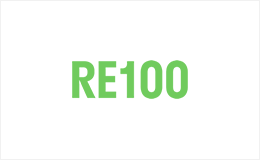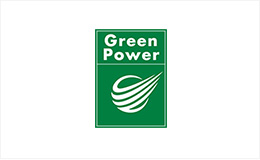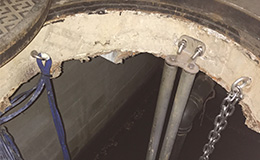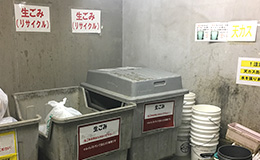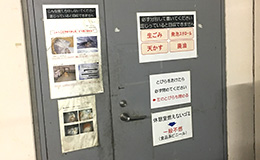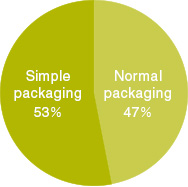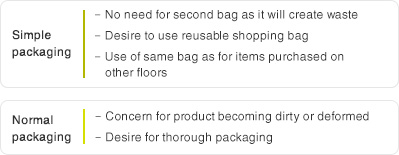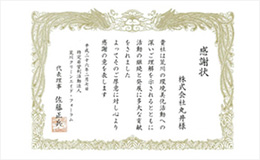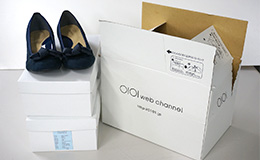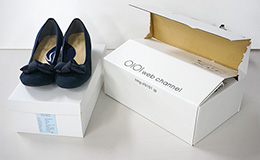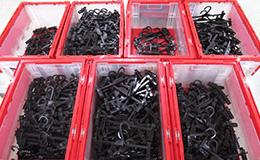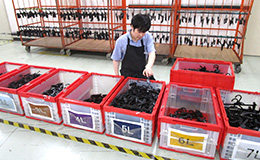Integrated Group Efforts to Reduce Environmental Footprint
- MARUI GROUP Environmental Policy
- Initiatives for Combating Climate Change Together with Business Partners and Customers
- Decarbonization and Resource Conservation Initiatives
- Carbon Footprints
- Carbon Offset
- Incorporating Reduction into Business Activities
- Reuse Promoted through Clothing and Shoe Trade-in Programs
- Waste Reduction from Preventing the Creation of Products that Go Unused
- Ecological Network of Biodiversity
Decarbonization and Resource Conservation Initiatives
Renewable Energy Initiatives
Membership in RE100 International Initiative
Approximately 80% of CO2 emissions from MARUI GROUP is attributable to electricity use. To address these emissions, the Company became a member of the international initiative RE100 and announced its target of sourcing 100% of its electricity from renewable energy by 2030. In addition, we are engaging in renewable energy procurement activities through co-creation with new power suppliers, acquiring registration as a power retailer to gain access to a wide range of power sources, and advancing other initiatives.
Participation in Green Power Certification Systems
Marui family Mizonokuchi participates in green power certification systems and is utilizing renewable energy sources for a portion of the electricity it consumes. Also, solar power generation facilities were installed at AIM Logisport (Toda City, Saitama Prefecture) in 2014, and we are advancing other initiatives for utilizing renewable energy.
Electricity Consumption Reduction
Based on Japan's greenhouse gas reduction goals, MARUI GROUP is moving ahead with ongoing efforts for preventing global warming. In these efforts, we are using a reduction of 46% in emissions volumes in comparison to the fiscal year ended March 31, 2014, as a guideline amount to be targeted leading up to 2030.
To achieve our long-term targets, we are examining possible measures including proactively using renewable energy and introducing building energy management systems, electricity storage facilities, and energy-saving technologies. At stores, we are introducing LED lighting and high-efficiency fluorescent lights and replacing air-conditioning equipment with more energy-efficient equipment in conjunction with store renovations. In addition, we practice exhaustive management of sales floors, warehouses, office lighting, and humidity. Through these efforts, we are pursuing ongoing reductions in electricity consumption.
Lighting
Beginning in the fiscal year ended March 31, 2015, we began converting the basic lighting on sales floors into LED lighting, thereby realizing reductions in annual electricity consumption volumes. This conversion was completed in the fiscal year ended March 31, 2016. We are currently in the process of converting lighting within actual sales areas and in back-office areas.
Air-Conditioning
MARUI GROUP maintains high levels of air-conditioning equipment efficiency via regular maintenance while pursuing more efficient operation by revising usage times and temperature settings. In addition, we have established a plan for introducing energy-efficient air-conditioning equipment, which we have been systematically advancing since the fiscal year ended March 31, 2015.
New POS Systems and ATMs
In the fiscal year ended March 31, 2014, the Company began introducing new point of sales (POS) systems and ATMs, and we have since installed energy-saving replacements for all POS systems and ATMs.
Storewide Electricity Conservation Initiatives
We are proactively working to raise environmental awareness among employees through various electricity conservation initiatives. Examples of such initiatives include operating lighting and air-conditioning equipment in an energy-efficient manner in offices, stockyards, cafeterias, breakrooms, and other locations. In addition, we are extending the period of time in which we turn off restroom heaters and hand dryers and switch vending machines to electricity conservation mode.
-
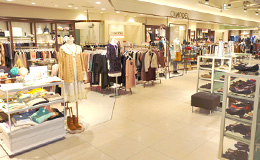
- Energy-efficient sales floor lighting
-
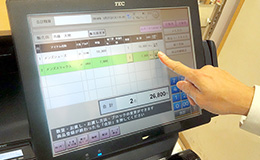
- New POS system
Greenhouse Gas Emissions Reduction
Encouragement of Shift to Renewable Energy
In September 2020, MARUI GROUP launched a project for promoting the shift to renewable energy with Minna-denryoku, Inc., as an initiative for reducing CO2 emissions together with customers. Through this project, we look to use renewable energy as a tool for addressing environmental issues with our customers.
Initiatives of Group companies
At MARUI GROUP, electricity conservation and facility efficiency initiatives are implemented on an individual store basis to reduce usage of electricity, gas, and other energy resources. In addition, solar power generation facilities were installed at the AIM Logisport (Toda City, Saitama Prefecture) of Group company AIM CREATE CO., LTD., in 2014. Annually, these facilities generate enough electricity to power 100 households. The generated electricity is sold to power companies to contribute to reductions in CO2 emissions. Furthermore, eco-friendly hybrid vehicles have been introduced into the distribution business fleet of Group company MOVING CO., LTD., to reduce CO2 emissions volumes. The Company is also installing digital signage displays boasting lower CO2 emissions than conventional signs at Marui and Modi stores.
-
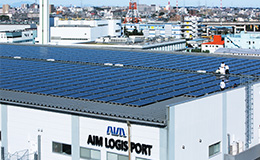
- Solar power generation facilities were installed at AIM Logisport in 2014. Annually, these facilities generate enough electricity to power 100 households
-
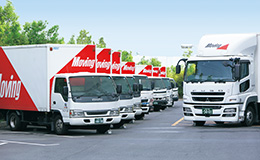
- Eco-friendly hybrid vehicles have been introduced into the distribution business fleet of MOVING CO., LTD., to reduce CO2 emissions volumes
Water Resource Utilization Initiatives
MARUI GROUP is implementing initiatives to promote the effective utilization of water resources at its head office and at certain Marui stores. Rainwater stored on rooftops is used in restrooms, and the water amounts used when flushing employee toilets are set at less wasteful levels.
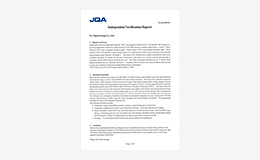
-
Independent Verification Report (FY2022)

Third-Party Verification Institution
Japan Quality Assurance Organization (JQA)
-
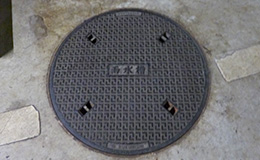
- Rainwater storage tank
-
Waste Reduction Initiatives
MARUI GROUP works together with business partners to reduce the amount of waste produced and to sort waste to increase the ratio of waste recycled. In the fiscal year ended March 31, 2022, a total of 10,102 tons of waste was produced, 70.1% of which was recycled.
The Company seeks to ensure that its waste is disposed of in a responsible manner. Employees visit the sites of waste disposal subcontractors to confirm whether or not there have been any shortfalls on the account of either party and to guarantee that waste disposal is conducted in compliance with the relevant laws.

-
Independent Verification Report (FY2022)

Third-Party Verification Institution
Japan Quality Assurance Organization (JQA)
-
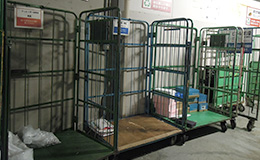
- Site of waste sorting at Marui store
-
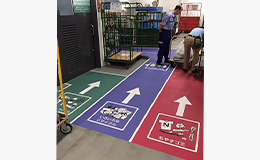
- Garbage sorting guidance lines at Marui Family Mizonokuchi waste treatment facilities
Food Recycling
MARUI GROUP is introducing food recycling programs into a wider range of its stores. By making it possible to sort food waste at the stage at which it is produced, we are attempting to increase recycling rates.
Basic Policies Pertaining to Containers and Packaging
Container and Packaging Directives
MARUI GROUP believes that helping to build a sustainable society and global environment through its business is part of its ethical responsibility toward future generations. With the goal of contributing to a sustainable, recycling-oriented society, we use eco-friendly materials for containers and packaging and take steps to collect and recycle these articles after use to entrench recycling across the value chain.
Containers and Packaging Used for MARUI GROUP Private Brand Products
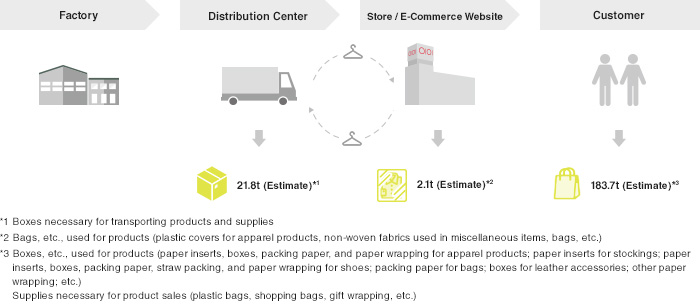
MARUI GROUP's Initiatives for Container and Packaging and Future Directives
e-commerce websites, and offices |
|||
|---|---|---|---|
| Current initiatives |
– Utilization of reusable cases – Collection and reuse of |
– Promotion of separation of containers, packaging, and other garbage (e.g., "eco-factory" at Marui Family Mizonokuchi*) |
– Transition from plastic shopping bags to paper shopping bags – Substitution of shoe boxes with recyclable materials – Adoption of alternative materials for straw packing for shoes |
| Future directives |
– Continuation of current |
– Transition to low-environmental-impact materials for containers and packaging for products and supplies (acquisition of environmental certification) – Promotion of garbage sorting (raise recycling rates) – Encouragement of business partners to reduce environmental impacts |
– Replacement of plastic materials with paper materials to reduce container and packaging weight – Development of shopping bags that can continue to be used over the long term through co-creation with customers |
* Waste treatment facilities at Marui Family Mizonokuchi (employs garbage weighing system to track garbage production by tenant and utilizes visual guides to facilitate garbage sorting)
Scope of Application
| Container and packaging materials | Containers and packaging disposed of at stores, e-commerce websites, and offices | Containers and packaging disposed of after being transferred to customers (shopping bags, etc.) | ||
|---|---|---|---|---|
| Directly produced sales floors |
Private brands | – Transition to low-environmental-impact materials |
– Ensure extensive recycling through promotion of garbage sorting |
– Reduction of materials transferred to customers |
| Third-party brands | – Encouragement of business partners to transition to low-environmental-impact materials |
– Ensure extensive recycling through promotion of garbage sorting |
– Reduction of materials transferred to customers |
|
| Tenants | – Encouragement of tenants to transition to low-environmental-impact materials |
– Ensure extensive recycling through promotion of garbage sorting |
– Encouragement of tenants to reduce materials transferred to customers |
|
Container and Packaging Waste Volumes (Estimated)
| FY2018 | FY2019 | FY2020 | ||
|---|---|---|---|---|
| Paper | Total weight (tons) | 319.4 | 236.4 | 161.3 |
| Rate of recyclable and certified-material use (%) | 24.4 | 33.2 | 51.8 | |
| Internal recycling rate (%) | 100 | 100 | 100 | |
| Plastic | Total weight (tons) | 165.0 | 99.4 | 46.2 |
| Total recycling rate (%)* | 100 | 100 | 100 |
* MARUI GROUP discontinued the use of plastic shopping bags and began selling 100% recyclable paper shopping bags in June 2020
Container and Packaging Targets
MARUI GROUP is working to reduce the overall weight of paper and plastic containers and packaging materials used while also practicing exhaustive garbage sorting and maintaining 100% recycling rates.
In addition, we will continue to encourage business partners and customers to recycle in order to aid in the reduction of environmental impacts associated with containers and packaging throughout society.
Container and Packaging Reduction Initiatives
General waste processed across Japan contains large quantities of packaging. Recognizing its responsibility as a supplier of products, MARUI GROUP strives to reduce packaging.
Reduction of Plastic Use: Transition to Paper Shopping Bags
MARUI GROUP discontinued the use of plastic shopping bags in June 2020, and began selling paper shopping bags at all directly operated shops in Marui and Modi stores nationwide in July 2020. This move was undertaken as part of our efforts to foster a culture of carrying personal reusable shopping bags together with our customers. The paper shopping bags offered use 100% recyclable to contribute to forest protection.
-
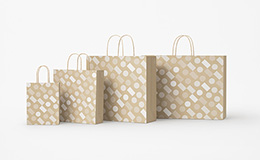
- Paper shopping bags
Inquiries on Customers' Desired Packaging Method
When customers purchase products, we ask them their desired packaging method to cut back on the use of unnecessary packaging and reduce waste.
Customer Responses Regarding Desired Packaging Method
Stop of Free Provision of Paper Bags at Shokuyukan Food Sales Areas
In February 2017, we stopped providing paper bags to customers at Shokuyukan food sales areas free of charge. This move was taken out of consideration for the recent rise in social contribution awareness among customers as well as the need to preserve the environment by cutting back on packaging. Customers requesting paper bags are asked to make a donation of at least ¥10, which we provide to environmental organizations or municipal government agencies that work to help preserve the environment.
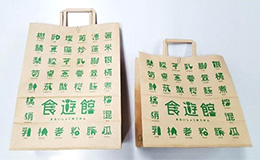
Initiatives for Reducing Plastic Bag Usage
MARUI GROUP began charging for plastic bags at its nationwide locations in 2020 in an effort to curtail excessive plastic consumption. Similarly, all Marui Shokuyukan food sales areas have been reducing plastic bag usage by charging for plastic bags since 2019.
Letter of Appreciation from Nonprofit Organization
At Kitasenju Marui, customers can choose to direct donations toward Adachi City or to Arakawa Clean Aid Forum, a nonprofit organization that seeks to recover the natural splendor of the Arakawa river through trash pickup activities in this area. In February 2014, MARUI GROUP received a letter of appreciation from Arakawa Clean Aid Forum at a ceremony celebrating the 20th anniversary of its founding out of recognition of these ongoing donation activities.
Donation targets
| Kokubunji Marui | Totoro no Furusato Foundation |
| Marui Family Mizonokuchi | Tamagawa Eco Museum |
| Kitasenju Marui | Arakawa Clean Aid Forum |
| Marui Family Ebina | Katsuragawa-Sagamigawa River Basin Council |
| Marui Family Shiki | Shiki River and City Beautification Association |
| Totsuka Modi Marui Shokuyukan | Forum for Increasing the Appeal of Kashiogawa River and municipal government organizations |
| Kokubunji Marui: Totoro no Furusato Foundation |
| Marui Family Mizonokuchi: Tamagawa Eco Museum |
| Kitasenju Marui: Arakawa Clean Aid Forum |
| Marui Family Ebina: Katsuragawa-Sagamigawa River Basin Council |
| Marui Family Shiki: Shiki River and City Beautification Association」 |
| Totsuka Modi Marui Shokuyukan: Forum for Increasing the Appeal of Kashiogawa River and municipal government organizations |
Adjustable Size Boxes for Internet Sales
Adjustable size boxes can be folded to change their shape to provide a more appropriate size when only one pair of shoes is returned when two pairs or more pairs are ordered, which contributes to improved customer convenience while reducing the burden of transportation.
-
Before
-
After
Groupwide Reuse Initiatives
Hanger Reuse
The Company introduced standardized department store hangers in 1997. This move has made it possible to collect and return hangers after delivery. In addition, other hangers that are no longer needed can be recycled as plastics. However, we realized that a number of the recycled hangers were actually still usable. A Groupwide project was subsequently launched in 2016 to address this issue, and we began reusing such hangers in April 2017.

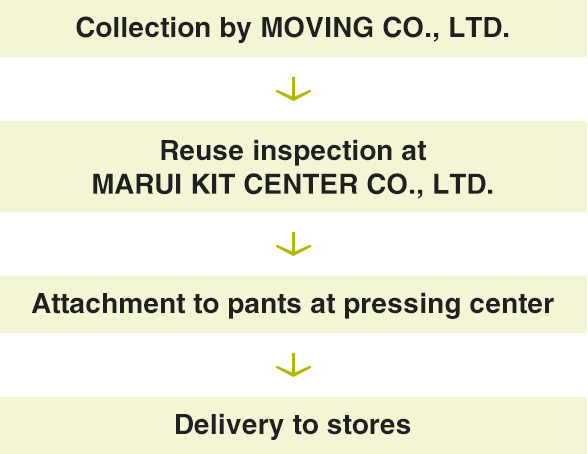
Collapsible Repeat Box Reusable Shipping Carton
The introduction of collapsible Repeat Box reusable shipping cartons has helped reduce the amount of cardboard boxes used in distribution operations associated with MOVING CO., LTD., to zero.
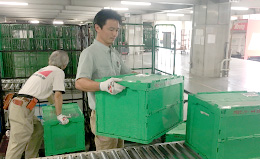
This sustainability website is designed to accommodate people with color blindness.







